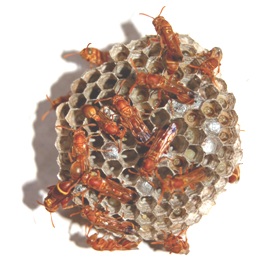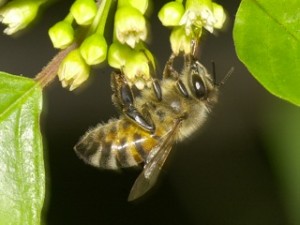Tuesday, October 8, 2013
07:30 PM
Queens, potential queens, and temporary workers in a tropical paper wasp species
MCZ 101, 26 Oxford Street, Harvard University
 Shantanu Shukla,
Shantanu Shukla,
Harvard University
Ropalidia marginata is a primitively eusocial wasp from southern and south-eastern Asia. Queens and the workers are morphologically similar, and reproductive castes are flexible. Queens are the sole egg layers in the colony, but workers retain the capacity to fully develop ovaries and become queens. What distinguishes this species is that the queen is not the dominant female, but is meek and docile. How then does the queen maintain her reproductive dominance? How does the colony regulate its maintenance and care? If workers are capable of becoming queens, why don’t they do so?
Dr. Shukla will demonstrate how he has used behavioral experiments to elucidate the mysteries of these complex and fascinating social insects.
The talk is free and open to the public. The meeting is readily accessible via public transportation. Parking is available in the Oxford Street Garage with advance arrangement, as described here, or (usually but not always) at spaces on nearby streets. Everyone is also welcome to join us for dinner before the talk (beginning at 6:00 PM) at Cambridge Common restaurant, on 1667 Massachusetts Ave.
CEC meetings are held the second Tuesday of the month from October through May. The evening schedule typically includes an informal dinner (6:00 to 7:15 PM) followed by our formal meeting (7:30 – 9:00 PM). The latter begins with club business and is followed by a 50 minute entomology related presentation. Membership is open to amateur and professional entomologists.



